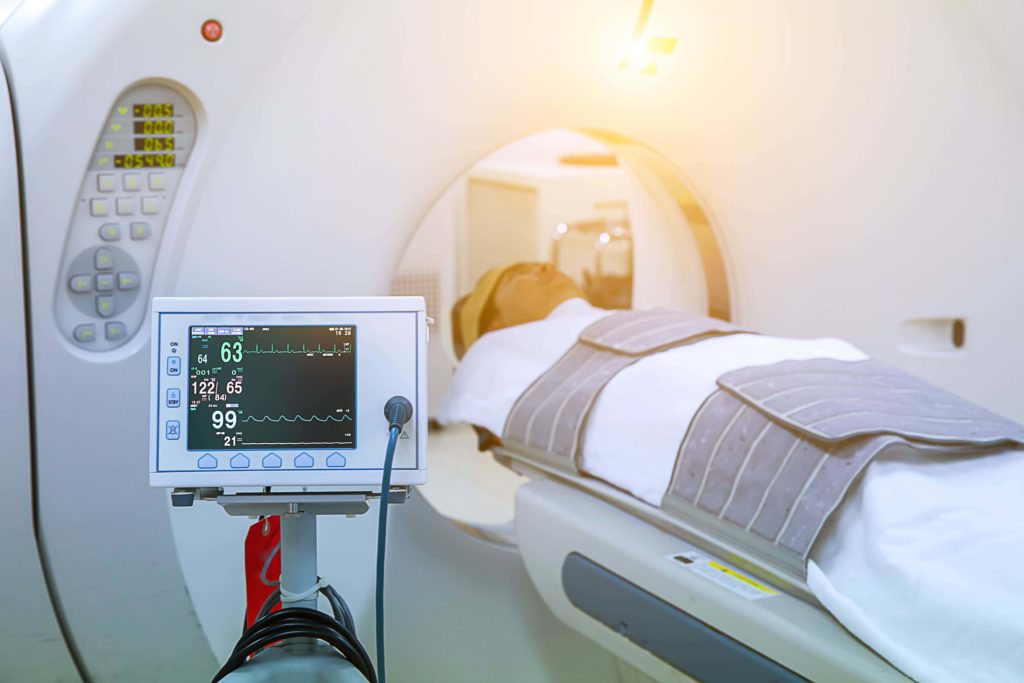A CT Heart Scan, also known as coronary calcium scan, is a medical test that involves the use of computerized tomography (CT) to detect the presence of calcium deposits in the arteries. If a patient scores high on this test, it indicates the presence of calcium deposits, which can lead to the narrowing down of coronary arteries, and subsequently increase the chances of developing a heart attack.
Why are CT Heart Scans performed?
CT Heart Scans are primarily performed to detect the chances of developing a heart attack early. While this test is used to confirm the onset of heart diseases, it also identifies any underlying signs of developing coronary artery diseases by assessing the calcium deposits.
Who should get a calcium-score screening?
People between the age of 40 and 70 are recommended to get a calcium-score screening. Other factors involve:
- Family history of heart diseases
- History of smoking
- History of high blood pressure and cholesterol
- Sedentary lifestyle and limited physical activities
- Obesity and excess body fat
Who should not get a calcium scan?
Patients who have been already diagnosed with coronary artery diseases or who have received treatment for coronary artery diseases are not required to get a calcium scan.
How is a CT Heart Scan performed?
The procedure for a CT Heart Scan is as follows:
- Patients are required to lie still on their back on a table, with their head and feet outside the table.
- Electrodes are placed on the chest of the patient to record the heart’s electrical activity. These electrodes are attached to a machine that displays the heart’s electrical rhythm. For certain patients, medication may be provided to slow down the heart rate.
- Once the patient is inside the scanner, the machine’s X-Ray beams are emitted and rotated around the patient’s body.
- The machine begins to process separate images of the mid-section area, and these images are known as slices. These images can also be 3D models of the patient’s heart.
- The duration of this scan is around 10 minutes. During certain periods, patients are also requested to hold their breath for a small amount of time.
What is the preparation involved for CT Heart Scans?
To prepare for a CT Heart Scan, patients are required to do the following activities:
- Food and medications – Patients are advised to fast for 8 hours before the scan, and any drinks that contain caffeine is prohibited since caffeine can affect a patient’s heart rate. Surgeons would also look at the patient’s medical history to understand if any type of food should be avoided before the scan is performed.
- Clothing and personal items – Just before the CT Heart Scan is performed, patients are required to remove any jewellery or metal items like piercings. For the test, patients are required to wear hospital gowns that are loose-fitting. Once the test is administered, patients can get on with their normal routines, such as driving cars.
What are the risks associated with a CT Heart Scan?
The risks associated with CT Heart Scans are as follows:
- Contrast dye – Dye is typically used for CT Heart Scans containing iodine, which needs to be flushed out by the patient’s kidneys. If the patient suffers from any renal disorders, they can develop allergic reactions to the dyes used. Even though these dyes pose less risk to the kidneys, patients can experience mild itching and rashes.
- Radiation – Since a CT Heart Scan involves X-ray beams, patients are exposed to radiation. While most CT scans produce safe levels of radiation, patients are still assessed for any underlying conditions which can be exacerbated by X-Ray beams.
What to expect?
Patients undergoing CT Heart Scans will be completely supervised by the surgical team, but it’s also important for them to know what to expect and avoid any surprises that could lead to a stressful situation during the test.

Before the procedure
Patients are given a beta-blocker which slows down the heart rate, for the technician to take clear pictures. Once the beta-blocker is administered, an intravenous line (IV) is inserted into a vein and a radioactive dye is inserted through the IV. Patients may feel a metallic taste in their mouths when the dye is inserted. Patients are also required to lie down still on a bench, and asked to hold their breath for short amounts of time.
During the procedure
Once the test is underway, the patient lying on the bench is moved into the CT machine, and the patient is required to stay inside the CT machine. The entire test usually lasts 10 minutes. While the patient is inside the CT machine, they can communicate with the diagnostic team through an intercom located inside the machine. Instructions from the diagnostics team, such as holding the breath for a short period of time, are also conveyed through this intercom.
After the procedure
Once the CT Heart Scan is completed, patients are allowed to resume their normal activities, and advised to drink a lot of water to flush out the dye.
What are the results of a CT Heart Scan?
Upon completion, results from a CT Heart Scan are usually delivered conveyed to the patient by the consulting doctor. The results are as follows:
- A score of zero indicates the complete absence of calcium in the arteries, and higher score indicates a higher amount of calcium. The higher the score, the more prone a patient is to develop a heart attack.
- A score between 100 and 300 indicates the presence of moderate calcium plaque deposits, and a score that’s higher than 300 indicates a high amount of plaque accumulation.
Conclusion
Results from a CT Heart Scan is rarely used as the sole predictor of heart diseases and heart attacks. Physicians usually combine the results of the CT Heart Scan with other relevant information before making a definite diagnosis of a heart condition. However, CT Heart Scans provide a clear picture of any underlying heart conditions. Hence individuals over the age of 40 are advised to undergo these tests to ensure the heart is healthy and free of any blockages.
Frequently Asked Questions (FAQs)
How often should I undergo a coronary calcium scan?
You do not have to go through a coronary calcium scan frequently. A CT Heart Scan once every ten years is enough to assess your heart condition.
Will I be admitted to the hospital?
You do not need to be admitted to the hospital. A CT Heart Scan is a simple procedure, and you can go home immediately after the test.
Can I exercise with a high calcium score?
You can exercise even with high levels of calcium deposits in your arteries. However, maintain moderate levels to avoid complications.
Should I stop any medications?
Your doctor may advise you stop taking certain medications only if there is a need to do so.
What is a normal coronary calcium score?
The normal range of a coronary calcium score is between 0 to 300.
What is a bad calcium heart score?
Any test results that come above 300 is said to be bad, and indicates a higher risk of developing heart attacks. Patients who score higher than 300 are usually admitted to the hospital, and treatment begins as soon as possible.


















